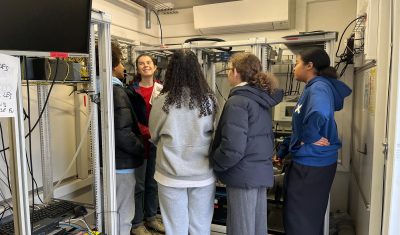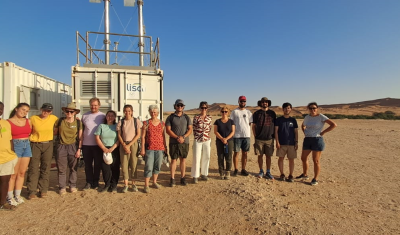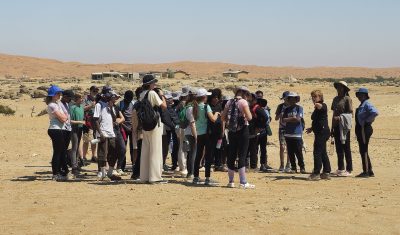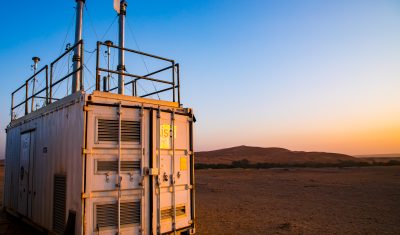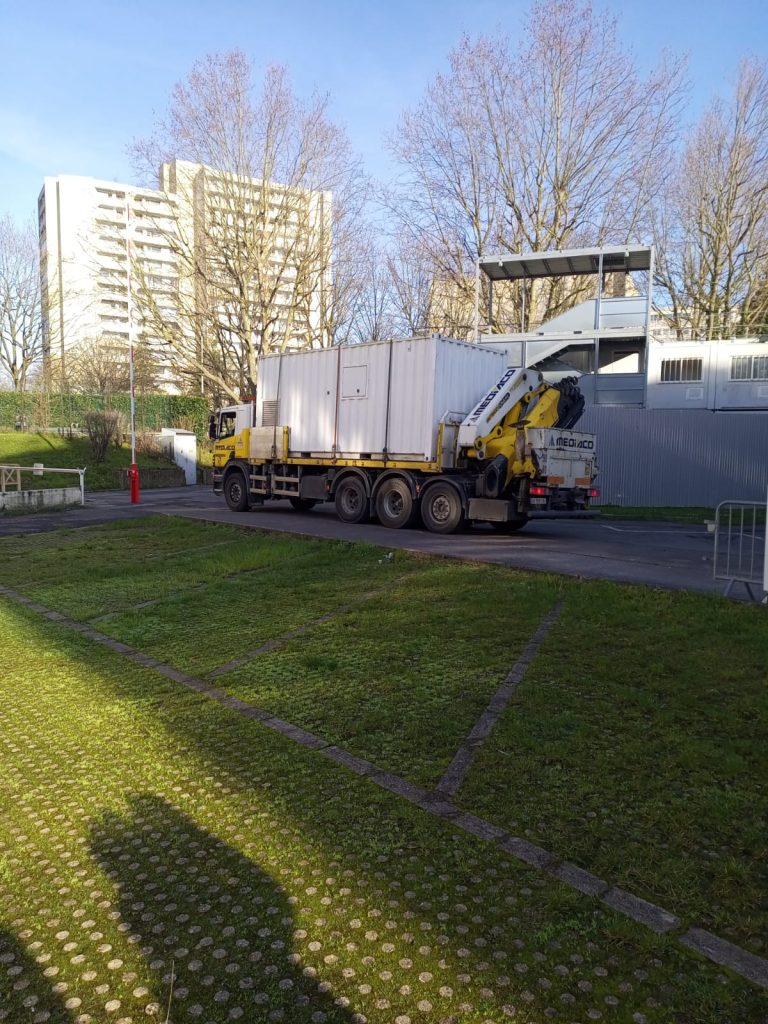La plateforme mobile PEGASUS (Portable Gas and Aerosol Sampling UnitS) est un ensemble instrumenté opérationnel pour l’observation de terrain qui vise l’étude de la composition atmosphérique particulaire et gazeuse, ainsi que celle des propriétés optiques et hygroscopiques des aérosols qui en déterminent leurs effets direct et indirect sur le bilan radiatif sur le système terre-atmosphère. PEGASUS est une plateforme d’accueil équipé des dispositifs (rails de fixation type aéroporté, postes d’acquisition et stockage informatique centralisé et sécurisé, procédures rédigées…) ainsi que des personnels formés pour accueillir les instruments d’autres unités. Depuis 2022, PEGASUS est un instrument national du CNRS INSU au sein de l’infrastructure de recherche ACTRIS-FR.
PEGASUS (Portable Gas and Aerosol Sampling UnitS) mobile facility is an operational instrumented set for field observations aiming to study the aerosol and gas phase atmospheric composition, and the optical and hygroscopic properties of aerosols which determine their direct and indirect radiative effects.
PEGASUS welcomes collaboration. It is equipped with dedicated devices (airborne type mounting rails, acquisition stations and centralized and secure computer storage, written procedures, etc.) and operated by trained personnel to host instrumentation from other institutes. Since 2022, PEGASUS is a national facility of CNRS INSU within the ACTRIS-FR research infrastructure.
News
Visit of schoolchildren from the Paris region at Pegasus
As part of their final year internship, 5 schoolchildren from the Paris region visited Pegasus, which is currently being prepared for the next BACCOPA campaign in Congo. The visit was an excellent opportunity to discover the platform and its instruments. The students also gained a better understanding of the various preparations involved in a measurement […]
Three new publications from the ACROSS campaign in June !
June 2025 is a prolific month for PEGASUS! Three new publications based on data from the ACROSS campaign have appeared on the ACROSS special issue. Andersen et al. : « Short-lived organic nitrates in a suburban temperate forest: an indication of efficient assimilation of reactive nitrogen by the biosphere? » Pereira et al. : « Molecular characterization of […]
The French Ambassador in Namibia visits PEGASUS during AEROFOG
The PEGASUS and AEROFOG teams had the pleasure to welcome Madame Cécile Vigneau, Ambassador of France in Namibia, at the Gobabeb Namib Research Center. Madame the Ambassador was introduced to the scientific objectives of the AEROFOG projetc and the technical challenges of measuring aerosol particles and reactive gases in such a remote environment.
Visit of the Windhoek International School at PEGASUS
As part of the Grade 7 field trip, students from the Windhoek International School visited the AEROFOG teams, PEGASUS and its instrumentation. A good way of learning how science contributes to the understanding and the conservation of our environment. And to remember that science is not just a subject, but a profession…. To know more […]
The AEROFOG field campaigns in Namibia
The campaigns of the AEROFOG field projects are ongoing: May on the coast, at the Henties Bay campus of the University of Namibia, and September in the Namib desert at the Gobabeb Namib Research Center. PEGASUS is operated jointly with fog collectors and meteorological measurements to understand the role of aerosols in the formation and […]
Off again, direction Namibia
On monday 4 March, PEGASUS has left again to Namibia. A lot of preparatory work and exciting data ahead in the framework of the Aerosols and fog in southern Africa: processes and impact on biogeochemistry (AEROFOG) project. PEGASUS will be operated on the coast, at the Henties Bay campus of the University of Namibia in […]

